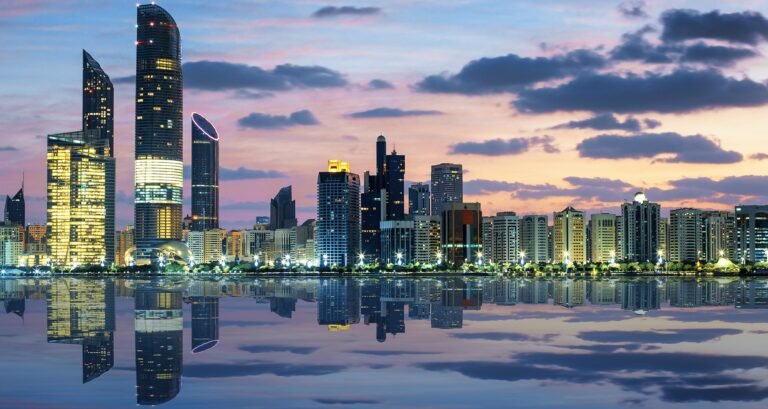Abu Dhabi’s real estate market is experiencing a period of dynamic growth and transformation. Driven by a combination of government initiatives, foreign investment, and an improving economic landscape, the market shows strong signs of resilience and potential. This analysis delves into the current trends, factors influencing the market, and the future outlook for Abu Dhabi’s real estate sector.
Current Trends in Abu Dhabi’s Real Estate Market
The residential real estate sector in Abu Dhabi has shown steady growth, with increasing demand for both rental and sale properties. High-end luxury apartments and villas in areas like Saadiyat Island, Al Reem Island, and Yas Island continue to attract buyers and investors. Additionally, there has been a rise in demand for affordable housing, driven by the growing expatriate population and government policies aimed at increasing housing accessibility. The commercial real estate market is also seeing positive trends, particularly in office spaces and retail units. The gradual return to office work post-pandemic and the expansion of businesses in Abu Dhabi have fueled demand for modern, well-equipped office spaces. Retail real estate has benefited from the recovery in consumer spending and the expansion of retail brands into the capital.
Sustainability is becoming a significant focus in Abu Dhabi’s real estate sector. Developers are increasingly incorporating green building practices and energy-efficient technologies in new projects. Initiatives like Masdar City, a pioneering sustainable urban development, highlight Abu Dhabi’s commitment to environmental sustainability in real estate.
Factors Influencing the Market
The UAE government has implemented several initiatives to boost the real estate market. Measures such as the introduction of long-term visas for investors, the easing of foreign ownership restrictions, and incentives for first-time homebuyers have made Abu Dhabi an attractive destination for real estate investment.
The broader economic recovery in the UAE, driven by higher oil prices and diversification efforts, has positively impacted the real estate market. Economic stability and growth prospects encourage both local and foreign investors to invest in the property sector. Continued investment in infrastructure projects, including transportation networks, healthcare facilities, and educational institutions, enhances the appeal of Abu Dhabi’s real estate market. Improved infrastructure supports population growth and increases the desirability of residential and commercial properties.
Abu Dhabi’s strategic location, coupled with its robust legal framework and investment-friendly policies, attracts significant foreign investment in real estate. International investors are drawn to the emirate’s stability, high rental yields, and capital appreciation potential.
Future Outlook
The future of Abu Dhabi’s real estate market looks promising, with several key factors likely to drive sustained growth:
Although Expo 2020 was held in Dubai, its positive impact extends to Abu Dhabi. The increased international exposure and improved investor sentiment are expected to boost real estate demand in the capital. Ongoing and upcoming mega projects, such as the expansion of Al Maryah Island and new developments on Saadiyat Island, will add significant value to the market. These projects are set to enhance Abu Dhabi’s position as a leading real estate destination. The integration of advanced technologies, such as smart home systems and digital property transactions, will further modernize the real estate sector. These innovations improve efficiency, transparency, and the overall property buying experience.
In conclusion, Abu Dhabi’s real estate market is on a robust growth trajectory, supported by government initiatives, economic recovery, and foreign investment. With a focus on sustainable development and technological integration, the market is poised for continued expansion and success.


